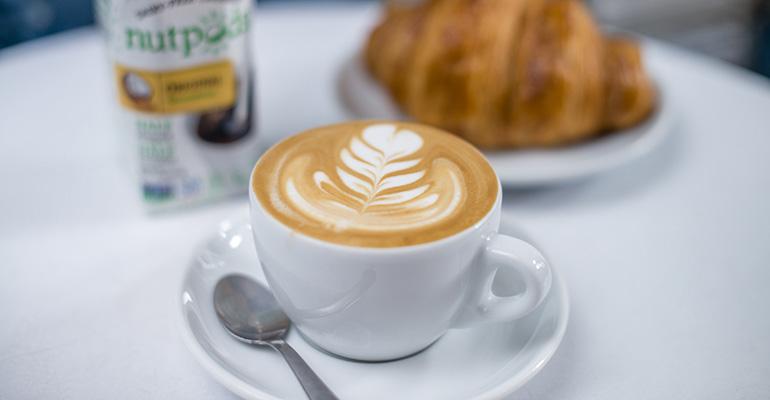Coffee preferences have undergone a phenomenal evolution in recent years. According to the Specialty Coffee Association of America (SCAA) Annual Research Report, specialty coffee ranks number one with millennials, with soft drinks a distant second place among 18- to 24-year olds. Last year was the first time coffee surpassed soda and water since the association began its annual specialty coffee research report more than 20 years ago.
In addition, the National Coffee Association’s annual study underscores that daily consumption of espresso-based drinks has nearly tripled for 18- to 55-year-olds since 2008. “Both men and women, especially millennials and the x generation, expect more flavorful coffee, giving rise to lighter roasts and exotic single origin coffees,” the report notes.
The growing demand for specialty coffees has encouraged development of new brewing and menu positioning techniques, including these:
1. Dessert pairings. Similar to wine pairings, select hospitality-focused roasters are working with executive chefs to pair single origin espressos and blends with dessert menus. A number of specialty coffee blends have milk or dark chocolate flavor notes that perfectly complement any chocolate-based desert. The distinct citrus and berry flavor notes in many single origin coffees, like the easily recognizable blueberry flavor notes in a quality Ethiopian coffee, open up opportunities.
2. Cold-brew nitro on tap. Cold-brew nitrogen draft drinks have grown so popular that California’s Pebble Beach Resort and golf course had its supplier develop a four-time concentrate of the authentic cold brew, prebrewed prior to any major events. This breakthrough process allows the heavy volume of drink orders to be filled in the restaurants and golf course beverage carts without having to cycle through the typical 17-hour cold brew process.
Similar to Pebble Beach, all Pacific Hospitality Group (PHG) resorts from Napa Valley to Southern California and Hawaii have been adding luxurious branded specialty coffee buildouts called “Blend Café” with blends and single origin coffees to meet customer expectations.
3. Cold brew as a mixology base for cocktails. Mixologists at three- to five-star restaurants are developing cold brew cocktails with their specialty coffee roast master, based on a growing customer appreciation for this opportunity to distinguish a restaurant.
4. Better-quality dairy-free alternative milks. These are on the rise, not just for the gluten-free, paleo or vegan lifestyles. They are also satisfying health-conscious consumers looking for a cleaner, plant-based option for their daily addiction.
Christa Duggan, co-owner of Roast Magazine’s 2015 “Roaster of the Year” award-winning Portola Coffee Lab, uses Nutpods, a dairy-free creamer made from almonds and coconuts for plant-based espresso drinks.
“I have never had an alternative milk product that is so full and with such a high viscosity. It has the mouthfeel of traditional half and half, and makes an amazing breve,” Duggan says.
Lon LaFlamme is a specialty coffee consultant for Peerless Coffee & Tea in Oakland, Calif.





